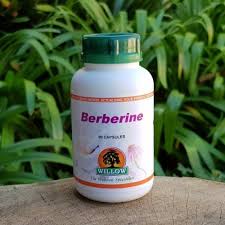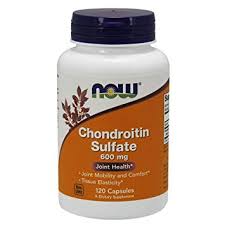Application and Pharmacologic action of Boron
Oct 16,2019
Boron is a mineral that is found in food such as nuts and the environment. People take boron supplements as medicine.
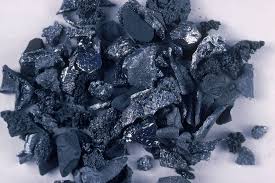
Application
Boron is used for boron deficiency and pain related to menstruation.
Women sometimes use capsules containing boric acid, the most common form of boron, inside the vagina to treat yeast infections.
People also apply boric acid to the skin as an astringent or to prevent infection; or use it as an eye wash.
Boron was used as a food preservative between 1870 and 1920, and during World Wars I and II.
Boron deficiency. Taking boron by mouth prevents boron deficiency.
Pharmacologic action
Boron seems to affect the way the body handles other minerals such as calcium, magnesium, and phosphorus. It also seems to increase estrogen levels in older (post-menopausal) women and healthy men. Estrogen is thought to be helpful in maintaining healthy bones and mental function. Boric acid, a common form of boron, can kill yeast that cause vaginal infections. Boron may have antioxidant effects.
Side effects
Boron is LIKELY SAFE for adults and children when used in doses less than the Upper Tolerable Limit (UL) (see dosage section below). There is some concern that doses over 20 mg per day, the UL for adults, might harm a man's ability to father a child.
Boric acid, a common form of boron, is LIKELY SAFE when used vaginally for up to six months. It can cause a sensation of vaginal burning.
Boron is POSSIBLY UNSAFE for adults and children when taken by mouth in high doses. Large quantities of boron can cause poisoning. Signs of poisoning include skin inflammation and peeling, irritability, tremors, convulsions, weakness, headaches, depression, diarrhea, vomiting, and other symptoms.Also, boric acid powder, a common form of boron, is POSSIBLY UNSAFE when applied in large amounts to prevent diaper rash.
Special precautions & warnings
Pregnancy and breast-feeding: Boron is LIKELY SAFE for pregnant and breast-feeding women age 19-50 when used in doses less that 20 mg per day. Pregnant and breast-feeding women age 14 to 18 should not take more than 17 mg per day. Taking boron by mouth in high doses is POSSIBLY UNSAFE while pregnant and breast feeding. Higher amounts may be harmful and should not be used by pregnant women because it has been linked to birth defects. Intravaginal boric acid has been associated with a 2.7-to 2.8-fold increased risk of birth defects when used during the first 4 months of pregnancy.
Hormone-sensitive condition such as breast cancer, uterine cancer, ovarian cancer, endometriosis, or uterine fibroids: Boron might act like estrogen. If you have any condition that might be made worse by exposure to estrogen, avoid supplemental boron or high amounts of boron from foods.
- Related articles
- Related Qustion
- Boron: An Element with Exceptional Chemistry Apr 7, 2024
Unlike its group 13 neighbors, boron exhibits behaviors and forms compounds that are not quite metallic and yet not fully nonmetallic.
- How many valence electrons does boron have? Mar 12, 2024
Boron has 3 valence electrons. The number of electrons in the outermost (or) valence shell layer of an atom is called valence electrons.
- Is boron nonmetal?Is it good for health? Mar 12, 2024
Elemental boron is rare and poorly studied because the pure material is extremely difficult to prepare. Most studies of "boron" involve samples that contain small amounts of carbon.
Berberine is a chemical found in several plants including European barberry, goldenseal, goldthread, Oregon grape, phellodendron, and tree turmeric.Berberine is most commonly taken by mouth for diabetes, high cholesterol, and high blood pre....
Oct 16,2019Biochemical EngineeringChondroitin sulfate is a chemical that is normally found in cartilage around joints in the body. Chondroitin sulfate is usually manufactured from animal sources, such as shark and cow cartilage.....
Oct 16,2019APIBoron
7440-42-8You may like
- Crystal Structure of Aluminum Selenide
Apr 23, 2024
- Crystal Structure and Property of Tin Selenide
Apr 23, 2024
- Crystal Structure of Uranium Carbide
Apr 22, 2024
- Boron powder
-

- $325.00 / 25Kg/Drum
- 2024-04-08
- CAS:7440-42-8
- Min. Order: 1Kg/Bag
- Purity: 96%
- Supply Ability: 3ton per month
- Boron
-
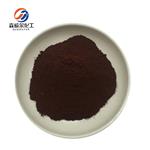
- $0.00 / 50g
- 2023-11-27
- CAS:7440-42-8
- Min. Order: 50g
- Purity: 99%
- Supply Ability: 60kg
- Boron
-
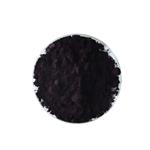
- $0.00 / 1kg
- 2023-08-14
- CAS:7440-42-8
- Min. Order: 1kg
- Purity: 0.99
- Supply Ability: 50000kg




